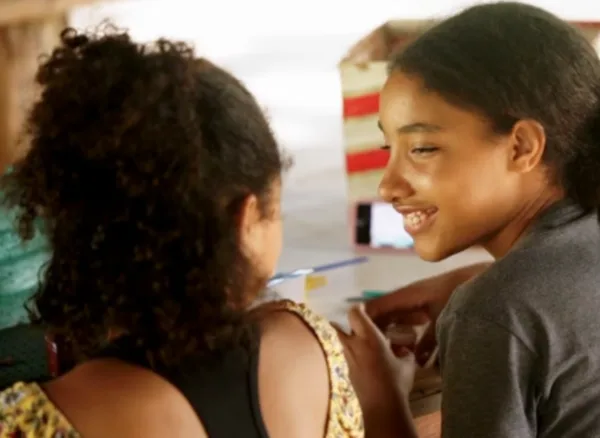Menu

This recording is the fourth in a series of public seminars given by scholars lecturing at St Antony’s College, University of Oxford as part of the Templeton World Charity Foundation (TWCF) supported project, Education, Purpose and Human Flourishing in Uncertain Times (EPHF). EPHF explores new understandings of education, purpose, and human flourishing through annual convenes and publications.
Shaw’s work, which he discusses in the above video, draws on ethnography, interviews, and textual and art-historical analysis of young artists’ works and words to uncover the forms of empathy that grow out of their creative processes. Themes explored include class, isolation and loneliness, and the power of the arts to transcend disconnects.
One video project took two groups of children from distinct social classes and had them work to imagine what life would be like for the other group of kids. The activities inspired empathy from children across the city’s socio-economic divides. Shaw argues that while moments of connection don’t necessarily break down the walls between social groups, such work is a first step.
Leticia, a child participant, shares through video her experience of loneliness and isolation throughout the Covid-19 pandemic, suggesting that “art does not need to be pretty”. It is instead the meeting of other people that gives the sense of “wow” at the power of being together. Art is also defined as “being together” in the video clip O Dabacuri, which explores the Orisha’s sense of communal celebration as collective ecstasy. This sharing of bodily experiences, the lack of subject and object, presents a unique Afro-Brazilian perspective of empathy.
A third perspective expressed by these youth sees art’s function as a parenthesis, free from surveillance and judgment. Fiction takes on power in group settings, allowing the children to explore difficult ideas. One example offered was children’s dialogue around gender nonconformity. The children worked out the concept through imaginative story-telling and fiction.
Ultimately, Shaw suggests that children’s way of knowing “through the skin of another” is closest to the indigenous perspective of empathy, in which the fundamental imperative is “seeing the world through the eyes of the other”. He concludes by suggesting that, in line with the Amazonian indigenous imaginary, we are not “beings” but “betweens” — people as transition. Purpose, or the meaning in life is, therefore, the search for the meaning of life. If we knew the answer, then we would lose our purpose.
Kurt Shaw, TWCF grantee, has published extensively on topics ranging from political philosophy to Amazonian epidemiology, and has developed the world’s largest network of grass-roots organizations serving street kids, working towards a reduction in the number of children living on the streets of Latin American cities. He studied philosophy at Williams and classics at Harvard, but, as he says, his real education came from two years in Central American refugee camps and Colombian slums, where he found poor and marginalized people more compelling thinkers than many academic philosophers.
Dr. David Johnson, Junior Proctor, University of Oxford, Reader in Comparative and International Education, and Fiona Gatty, DPhil., Research Project Coordinator and TWCF Fellow in Comparative Education, are Principal Investigator and Co-Investigator of the EPHF Project. Luana DeBorst, Research Assistant, University of Oxford, assists with the project.



